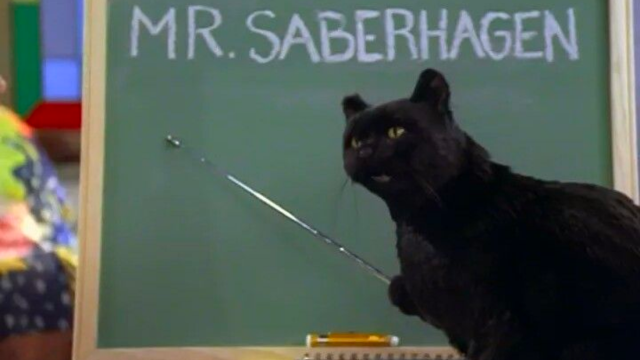Over in the U.S., someone who successfully cloned their beloved cat has now answered a bunch of questions about the cloning in a Reddit AMA.
This was originally a morning TV story back in March, when Kelly Anderson revealed that she spent $US25,000 (about $32,500 in Aussie Bucks) on cloning her furry friend Chai (also Good Morning America used “A real-life copycat!” in the headline, which I have to applaud). The cells from Chai that went into cloning became Belle, a near-identical kitty.
Cloning has come a long way since the 90s, with scientists now pondering cloning extinct species to bring them back.
The company that cloned the cat for Anderson was Viagen Pets & Equine, an experienced pet cloning company. It took them four years to create Belle.
She was all too happy to open up about her beloved cat Belle, of the former Chai. Let’s go through some of what was discussed in the AMA.
So, epicnoober1233 asked:
“Is it emotionally hard? I couldn’t imagine, when my current dog dies, seeing an exact clone but knowing it’s not the same pet. I’d be a complete wreck.”
To which Anderson was happy to respond “Not really. I never put the expectation of this being the same cat on her, so it was like learning (and was like learning) a new kitten all over.”
One of the initial thoughts you might have about cloning is that they’ll be the exact same cat, although it’s more like thinking of the animal as an identical twin, as pointed out by Reddit user Federated_Byzantine. They might be physically, internally and biologically the same as the original cat, however, the way that they develop and learn to act could change drastically.
A later question about the differences between the cats also shed some light on this, but Anderson was happy to respond that she never expected them to be the same. She sees them as “two very seperate individuals”. Later on, Anderson said that they’re similar in breed traits, both being bold and sassy, but they’re “different in about every other way.”
Another user, Grizzlybeared, asked:
“Is this a process you would/will continue to do with your cat?”
“Nope. I only did it because 1) my cat had a special connection with me I’ve never shared with anyone and 2) she died young. If this kitten dies young, I would be too scared that the next one would as well,” said Anderson. She later elaborated that she would not continue cloning.
As far as the morality around cloning animals goes, this is a pretty sound reason to get a furry friend cloned, but it does refrain from more ethical concerns (more on that below). Though $32,500 is a lot to spend on a photocopy of a pet, Anderson’s reasons stem from love for the original cat. She also said in her interview with Good Morning America that she wanted a piece of Chai to live on.
Additionally, although Anderson wasn’t able to answer questions surrounding this point, it appeared to be a popular question among AMA participants. Reddit user Hardlymd asked:
“How do you feel about the cats that are used as an incubation machine for yours? Do you have any info on the logistics behind that part of it?”
There were a lot of questions around this. One user asked “Did any other cloned cats die in the process?” and another asked:
“Were you not at all bothered by the ethical concerns surrounding cloning? (For example: the poor treatment/short lives/continual impregnating of surrogates, the creation and euthanasia of “imperfect” clones, the extensive animal testing, etc…)”
Anderson didn’t respond to many questions criticising the ethics of it all. Although clones tend to live longer than they previously did (which she did address) the process of cloning an animal can result in the death of the cloned animals shortly after birth (as pointed out by Massive Science) and involves the impregnation of a surrogate cat. People also questioned the ethics of cloning when adoption is, of course, always an option (we at Gizmodo Australia are “adopt don’t shop” supporters and can’t help but ask, “Why not just get another cat that looks the same?”).
We’ve reached out to Anderson for comment on the questions surrounding pet cloning.
The company that cloned the cat, ViaGen, has also partnered with pet influencers for more cloned pets. Barbra Streisand actually used ViaGen to clone her dog Samantha in 2018. Anyway.
You can take a deeper look at the AMA here.
